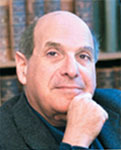The Bible In the News
015

My mother’s father’s father is the only great-grandparent of mine that I know about. He lived 100 years (from 1843 to 1943), and his name was Lazarus Levy. Perhaps, then, it was genetically encoded that I would have some interest in the Biblical Lazarus (whose story is so memorably told in John 11), especially as this figure shows up in the popular press of modern times.
As the following examples amply demonstrate, there is something about the combination of Lazarus and sports that leads to hyperbole (and I’m not, I hasten to add, exaggerating). From the world of rugby (from which I am a complete outsider): “In Biblical terms, the turnaround at Vale has seen one of the Bath Combination’s oldest and most hospitable clubs pull off the greatest comeback since Lazarus” (this from the Bath Chronicle). And: “Not since Lazarus has there been such an unlikely back-from-the-dead tale” (Australia’s Daily Telegraph on the successes of Parramatta’s Eels). Can soccer be far behind? Not if we give credence to this report (from the Scottish edition of the Daily Express): “Davie Weir has been nicknamed ‘Lazarus’ by his stunned Rangers colleagues as he gears up for a shock UEFA Cup return against Fiorentina … Jokers … reckon Weir’s comeback is of Biblical proportions, with the 37-year-old ‘back from the dead’ for the win-or-bust tie.”
In general, political reporters yield to none in their ability to turn a phrase, Biblical or otherwise. Examples abound here, as in this story, in which a commentator for London’s Daily Mail could, in late 2008, assert that “the return of this complex and damaged politician [Lord Mandelson] may be as surprising a resurrection since another Biblical figure, Lazarus, rose from the dead”—just as a Washington Post reporter could write, in the first part of that year, about “John McCain, whose campaign the Philadelphia Inquirer yesterday quoted someone as saying is ‘the greatest comeback since Lazarus.’” At about the same time, The Globe and Mail of Canada could speak of “The John McCain story [which] in its most popular form, follows an arc of Lazarus-like redemption.”
Outside of the hyperventilated world of sports and politics, the comparisons with Lazarus don’t seem at all inept. This is especially the case with medical reporting. From the Scottish edition of the Daily Express: “A heart failure victim came back to life half-an-hour after being given the Last Rites and officially pronounced dead by doctors, it has been revealed. Roofer Michael Wilkinson, 23, became only the 38th person worldwide to be revived like the Biblical figure Lazarus.” Lazarus-associated hope also exists for those in a coma but not yet dead (as reported in the Sunday Mail): “Devoted Donna McWilliam is pinning her hopes on a pill nicknamed the Lazarus drug to rouse her fiancé from a five-year coma … Doctors in the U.S. and South Africa have reported about 200 patients being miraculously brought out of a persistent vegetative state after using the Lazarus drug—named after the Biblical figure who rose from the dead.”
I leave it to an unbeatable combination—one of my students, named Joe Smetter, and YouTube—to provide the concluding example for this column. It involves Australian rocker Nick Cave and the Bad Seeds, whose album Dig!!! Lazarus, Dig!!!, appeared in early 2008. As described by a columnist for (London’s) Mail on Sunday, “The title track, halfway from a lecture to a football chant, tackles not just Lazarus but Harry Houdini (‘the second greatest escapologist,’ Cave says, ‘the greatest being Lazarus’) and Cave’s own memories of Seventies New York.” From The West Australian, we learn that Cave had wondered “how Lazarus felt about Jesus bringing him back to life among such filth. ‘I mean, he never asked to be raised from the tomb.’”
As it happens, Harry Houdini—whose famous escapes included the Milk Can and the Chinese Water Torture Cell—lived and died during the life span of my great-grandfather. It is possible, just possible, that my Lazarus met Nick Cave’s inspiration. After all, stranger things have happened!
My mother’s father’s father is the only great-grandparent of mine that I know about. He lived 100 years (from 1843 to 1943), and his name was Lazarus Levy. Perhaps, then, it was genetically encoded that I would have some interest in the Biblical Lazarus (whose story is so memorably told in John 11), especially as this figure shows up in the popular press of modern times. As the following examples amply demonstrate, there is something about the combination of Lazarus and sports that leads to hyperbole (and I’m not, I hasten to add, exaggerating). From the world of rugby […]
You have already read your free article for this month. Please join the BAS Library or become an All Access member of BAS to gain full access to this article and so much more.
